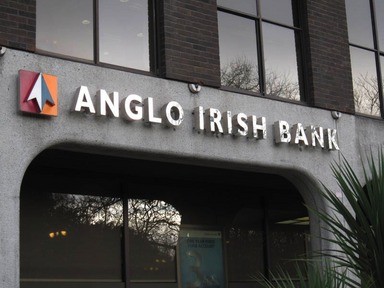The former CEO of Anglo Irish Bank, David Drumm, was officially charged with fraud and forgery on 33 counts in relation to the collapse of the lender. The ex-CEO appeared in Irish court for the first time since being extradited to the U.S.
Drumm was being held in U.S. federal custody after being arrested by officials in October. The 49-year-old former CEO arrived in Dublin early Monday morning after agreeing to return to Ireland.
Irish officials were awaiting Drumm’s return, with the intention of charging him with conspiracy to defraud, forgery, falsification of loan facilities, provision of unlawful financial assistance and false accounting.
Some of the offences Drumm is facing carry a 10-year maximum sentence.
Ireland’s GBFI (Garda Bureau of Fraud Investigation) and Director of Public Prosecutions opposed bail on grounds of Drumm being a flight risk.
Sergeant Michael McKenna of the GBFI told the courts that Drumm intentionally put himself out of reach of investigators. Only after being denied bail twice in the U.S. did the former CEO agree to extradition to Ireland.
Drumm moved to Boston in 2008 after resigning from the company just one month before the lender was nationalized.
Judge Michael Walsh will provide a decision on the bail request on Monday. Drumm has denied any wrongdoing.
In 2013, Anglo Irish Bank was put into liquidation after its casino-style lending practices led to a financial crisis. The bank’s failure wound up costing Ireland’s taxpayers 30 billion euros, about 15% of the country’s economic output. The failed lender also accounted for about half of the 64 billion euros the country had to pour into the banking sector to prevent a total collapse.
The majority of the charges being faced by Drumm are related to the illegal provision of loans to 10 people, known as the “Maple Ten,” and Sean Quinn’s family, the former billionaire businessman. The loans allowed these individuals to purchase shares in the bank, which boosted its share price.
Other charges are related to the temporary deposit of 7.2 billion euros by Irish Life & Permanent shortly before the end of the bank’s financial year.




